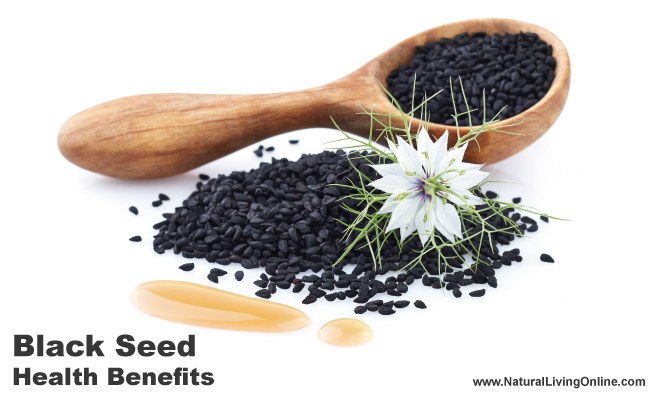Black seed, also known as Nigella sativa or Kalonji, is a small, black-colored seed native to the Mediterranean region. It has a long history of use in traditional medicine, with references to its medicinal properties dating back to ancient Egyptian, Greek, and Roman civilizations. Black seed has gained popularity in recent years due to its potential health benefits, which include antioxidant, anti-inflammatory, and antimicrobial effects.
Botanical Profile
Botanical Name: Nigella sativa
Common Names: Black seed, kalonji
Plant Family: Ranunculaceae
Countries of origin: Black seed is native to the Mediterranean region and is grown in a number of countries, including Egypt, India, and Pakistan.
Parts Used as medicine: The seeds and oil of black seed are most commonly used for medicinal purposes.
Therapeutic Properties: Black seed has been traditionally used to treat a variety of health issues, including digestive disorders, respiratory conditions, and skin conditions. It is believed to have antioxidant, anti-inflammatory, and antimicrobial properties, and may also have cancer-fighting potential.
Contraindications: Black seed is generally considered safe for most people, but it may interact with certain medications and may cause allergic reactions in some individuals. It is important to speak with a healthcare provider before starting any new supplement, especially if you have a pre-existing medical condition or are taking medications.
Nutritional profile
- Protein: Black seed is a good source of protein, with a 100-gram serving providing approximately 18 grams of protein. Protein is an essential nutrient that is necessary for the growth and repair of tissues in the body.
- Fat: Black seed is a rich source of healthy fats, including monounsaturated and polyunsaturated fats. These types of fats are known to be beneficial for heart health and may help lower cholesterol levels. A 100-gram serving of black seed provides approximately 45 grams of fat.
- Vitamins: Black seed is a good source of a number of vitamins, including vitamin C, vitamin E, and vitamin B-complex. Vitamin C is an antioxidant that helps protect the body’s cells from damage caused by free radicals, while vitamin E is also an antioxidant that may help reduce the risk of certain health conditions. The B-complex vitamins are important for energy metabolism and are necessary for the proper functioning of the nervous system.
- Minerals: Black seed is a rich source of minerals, including iron, zinc, and calcium. Iron is an important mineral that is necessary for the production of red blood cells, while zinc is important for immune function and wound healing. Calcium is essential for maintaining strong bones and teeth.
- Fiber: Black seed is a good source of dietary fiber, with a 100-gram serving providing approximately 18 grams of fiber. Fiber is important for maintaining a healthy digestive system and may help lower cholesterol levels and reduce the risk of certain health conditions, such as heart disease and diabetes.
Overall, black seed is a nutritious plant that is rich in a number of essential nutrients that are important for maintaining good health. It is worth considering as a natural option for adding nutrients to the diet.
Phytochemicals
Black seed is also rich in phytochemicals, which are naturally occurring compounds that are found in plants. These compounds are thought to have various health effects and may be responsible for some of the medicinal properties of black seed.
One of the key phytochemicals found in black seed is thymoquinone, which is a type of antioxidant. Antioxidants help protect the body’s cells from damage caused by free radicals, which are unstable molecules that can cause harm to the body’s tissues. Thymoquinone has been found to have strong antioxidant properties and may be responsible for some of the protective effects of black seed against various health conditions.
Other phytochemicals found in black seed include various types of flavonoids, phenols, and terpenes. These compounds may also contribute to the plant’s medicinal properties, although more research is needed to fully understand their specific health effects.
Medicinal properties of black seed
Black seed is known to have strong antioxidant properties, which can help protect the body’s cells from damage caused by free radicals. Free radicals are unstable molecules that can cause harm to the body’s tissues, and are thought to contribute to the development of various diseases. Antioxidants can help neutralize these harmful molecules, which may help reduce the risk of certain health conditions.
Black seed is also believed to have anti-inflammatory properties, which may help reduce inflammation in the body. Inflammation is a natural response to injury or infection, but chronic inflammation has been linked to a number of health conditions, including heart disease, diabetes, and cancer. By reducing inflammation, black seed may help protect against these and other health issues.
Black seed has also been found to have antimicrobial properties, which means it can help kill or inhibit the growth of harmful microorganisms. This can be especially useful in helping to prevent or treat infections.
There is also some evidence to suggest that black seed may have cancer-fighting properties. Some studies have found that black seed oil may be effective in inhibiting the growth of certain types of cancer cells, although more research is needed to fully understand its potential as a cancer treatment.
Health benefits of black seed
Black seed has been linked to a number of potential health benefits. Here are just a few:
- Improving digestion and reducing bloating: Black seed is thought to have digestive-aiding properties, which may help improve digestion and reduce bloating.
- Boosting the immune system: Black seed has been found to stimulate the immune system, which may help the body fight off infections and illnesses.
- Reducing allergies and asthma symptoms: Some studies have found that black seed may be effective in reducing allergies and asthma symptoms, although more research is needed to confirm these findings.
- Lowering blood pressure and cholesterol levels: Black seed has been found to help lower blood pressure and cholesterol levels, which may help reduce the risk of heart disease.
- Managing diabetes: Black seed has been found to help lower blood sugar levels, which may be helpful in managing diabetes.
- Promoting healthy skin and hair: Black seed oil is often used topically to help improve the health of the skin and hair. It is believed to have moisturizing and nourishing effects, and may be effective in treating a range of skin conditions, including eczema and acne.
How to use black seed
Black seed is available in a number of forms, including oil, capsules, and ground seeds. Black seed oil is often used topically to help improve the health of the skin and hair, while capsules and ground seeds can be taken orally. It is important to follow the dosage recommendations provided by the manufacturer, as overconsumption of black seed can lead to unwanted side effects.
There are a few potential precautions and side effects to be aware of when using black seed. It is generally considered safe for most people, but it may interact with certain medications and may cause allergic reactions in some individuals. It is always a good idea to speak with a healthcare provider before starting any new supplement, especially if you have a pre-existing medical condition or are taking medications.
Conclusion
In conclusion, black seed is a small but mighty seed with a long history of use in traditional medicine. Its medicinal properties, including antioxidant, anti-inflammatory, and antimicrobial effects, make it a potentially useful natural remedy for a range of health issues. It has been linked to a number of health benefits, including improving digestion, boosting the immune system, reducing allergies and asthma symptoms, lowering blood pressure and cholesterol levels, managing diabetes, and promoting healthy skin and hair. While more research is needed to fully understand the potential of black seed, it is worth considering as a natural option for improving overall health and wellbeing. As with any supplement, it is important to speak with a healthcare provider before adding black seed to your routine, and to follow recommended dosage guidelines to avoid any potential side effects.
References:
- An updated knowledge of Black seed (Nigella sativa Linn.): Review of phytochemical constituents and pharmacological properties
- A review on therapeutic potential of Nigella sativa: A miracle herb
- Review on Clinical Trials of Black Seed (Nigella sativa ) and Its Active Constituent, Thymoquinone
This website does not provide medical advice.
All information provided on this website, and on associated social media networks, including but not limited to texts, images, and numbers are for general information purpose only. It is not intended as medical advice and it does not include all possible precautions, side effects, or interactions that may occur. Neither NaturalLivingOnline.com nor its author/founder take responsibility for how you use this information. Statements contained on NaturalLivingOnline.com have not been evaluated by the FDA. You should conduct thorough research via multiple sources and consult your physician or qualified doctor before using any essential oil or herbal remedy. Information on NaturalLivingOnline.com must not be relied upon for medical, legal, financial or other decisions.













